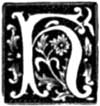The Poison Tree/Chapter 33
CHAPTER XXXIII.
HIRA'S GRANDMOTHER.
"Hira's old grandmother
Walks about picking up
A basket of cowdung.
With her teeth cracking pebbles.
Eating jak fruit by the hundred."
 IRA'S grandmother hobbled along with the help of a stick, followed by boys reciting the above unrivalled verses, clapping their hands and dancing as they went. Whether any special taunt was meant by these verses is doubtful, but the old woman became furious, and desired the boys to go to destruction, wishing that their fathers might eat refuse (a common form of abuse). This was a daily occurrence.
IRA'S grandmother hobbled along with the help of a stick, followed by boys reciting the above unrivalled verses, clapping their hands and dancing as they went. Whether any special taunt was meant by these verses is doubtful, but the old woman became furious, and desired the boys to go to destruction, wishing that their fathers might eat refuse (a common form of abuse). This was a daily occurrence.
Arriving at the door of Nagendra's house, the grandmother escaped from her enemies, who at sight of the fierce black moustaches of the durwans fled from the battlefield, one crying—
"Bama Charn Dobé
Goes to bed early,
And when the thief comes he runs away."
Another—
"Ram Sing Paré
With a stick marches boldly,
But at sight of a thief he flies to the tank."
A third—
"Lal Chand Sing
Doth briskly dance and sing,
Is death on the food,
But at work is no good."
The boys fled, attacked by the durwans with a shower of words not to be found in any dictionary.
Hira's grandmother, plodding along, arrived at the dispensary attached to Nagendra's dwelling. Perceiving the doctor, she said, "Oh, father, where is the doctor, father?"
"I am he."
"Oh, father, I am getting blind. I am twenty-eight or eighty years old; how shall I speak of my troubles? I had a son; he is dead. I had a granddaughter; she also—" Here the old woman broke down, and began to whine like a cat.
The doctor asked, "What has happened to you?"
Without answering this question, the woman began to relate the history of her life; and when, amid much crying, she had finished, the doctor again asked, "What do you want now? What has happened to you?" Again she began the unequalled story of her life; but the doctor showing much impatience, she changed it for that of Hira, of Hira's mother, and Hira's husband.
With much difficulty the doctor at last arrived at her meaning, to which all this talking and crying was quite irrelevant. The old woman desired some medicine for Hira. Her complaint, she said, was a species of lunacy. Before Hira's birth, her mother had been mad, had continued so for some time, and had died in that condition. Hira had not hitherto shown any sign of her mother's disorder; but now the old woman felt some doubts about her. Hira would now laugh, now weep, now, closing the door, she would dance. Sometimes she screamed, and sometimes became unconscious. Therefore her grandmother wanted medicine for her. After some reflection the doctor said, "Your daughter has hysteria."
"Well, doctor, is there no medicine for that disease?"
"Certainly there is: keep her very warm; take this dose of castor-oil, give it to her early to-morrow morning. Later I will come and give her another medicine."
With the bottle of castor-oil in her hand, the old woman hobbled forth. On the road she was met by a neighbour, who said, "Oh, Hira's grandmother, what have you in your hand?"
The old woman answered, "Hira has become hysterical; the doctor has given me some castor-oil for her; do you think that will be good for hysterics?"
"It may be; castor-oil is the god of all. But what has made your granddaughter so jolly lately?"
After much reflection the old woman said, "It is the fault of her age;" whereupon the neighbour prescribed a remedy, and they parted.
On arriving at home, the old woman remembered that the doctor had said Hira must be kept warm; therefore she placed a pan of fire before her granddaughter.
"Fire!" exclaimed Hira. "What is this for?"
"The doctor told me to keep you warm," replied the old woman.

